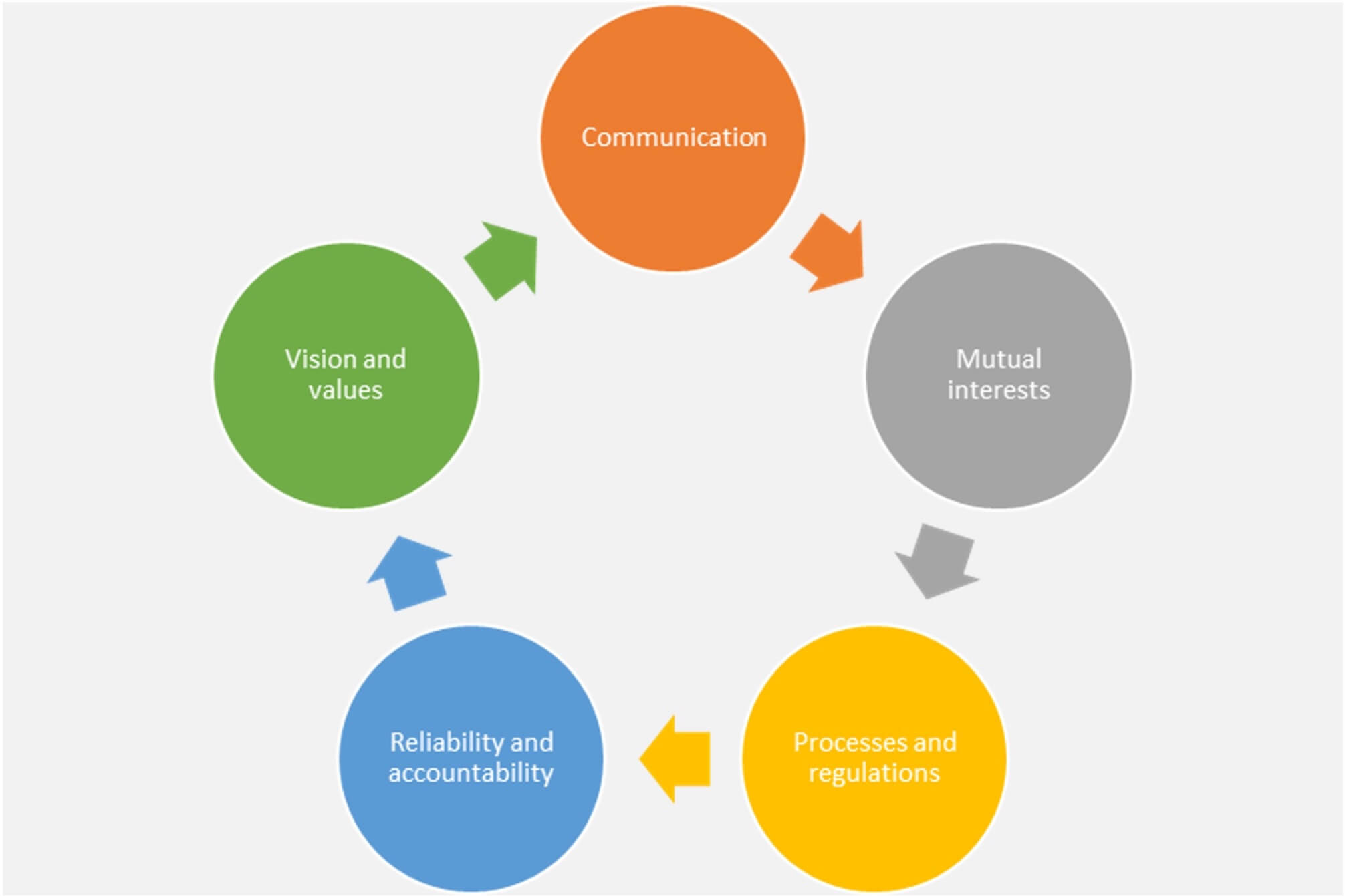
Last Updated: 07 Jan 2025 Which comes first, communication or values?
Several years ago, I developed a simple model to show how Japanese companies could built trust in their operations in Europe – with regard to their employees, customers and partners. The model had five elements – “communication”, “mutual interests”, “processes and regulations”, “accountability and reliability” and “vision and values”. I showed them as linked together in a circle, with communication at the top.
Claudia Romberg, our Japan Intercultural Consulting Germany and EU consultant liked the model, but felt that “vision and values” should be at the top of the circle, as that had to come first. I argued that although this was theoretically true, practically speaking, people had to be able to communicate with each other first, in order to develop a mutually accepted vision and values.
Poor communication is at the heart of many harassment complaints
I’ve recently come to realise that this model can apply at an employee to employee level too. When there are instances of workplace friction, it often turns out to be poor communication that has caused it.
Employees who want to complain about their manager or other employees in the European workplace should have been made aware of the processes available for making the complaint, but they also need to feel that they have been listened to even after they made the complaint.
European companies usually have anti-harassment and bullying policies and are legally obliged to protect their employees from harassment. Harassment is defined as unwanted behaviour towards someone on the grounds of a “protected characteristic,” which are age, sex, disability, gender reassignment, marriage and civil partnership, pregnancy and maternity, race, religion or belief and sexual orientation.
In the UK, the employee can choose to raise a grievance formally or informally. The formal grievance procedure involves an investigation and a decision, which may lead to a disciplinary process – the result of which can be anything from performance management to dismissal.
The need to loop back
Even if the grievance is informal, the company should still keep an eye on the situation and perhaps take further action, such as offering training, coaching or mental health support for the people involved. Most importantly, they should check back with the person who raised the complaint, and let them know what has been done. This is the “reliability and accountability” part of the cycle.
But yes, Claudia is right, the company needs an agreed set of values so they can develop polices on performance evaluation and training which reinforce communication and workplace behaviours that are in line with those values.
Japan Intercultural Consulting offers seminars and e-learning on preventing sexual harassment and discrimination, as well as more general diversity and inclusion sessions.
Related articles
23. Cho-Cho San【Column: Leap Before You Look】
Somehow, I am strongly attracted to Puccini’s opera, 蝶々夫人 (Madama Butterfly). I have been to m
22. Dare to be Barefoot【Column: Leap Before You Look】
One thing I never 屈服する (gave in to) while living here in the US for many years is to wear shoes insi
The culture component and why it matters in management
Let me start with what might at first appear to be a personal story unrelated to cross-cultural mana




